
Despite esports being a relatively new cultural phenomenon, competitive gaming has been prevalent since the 1970s. The first esports competition was held in 1972 and competitive gaming has come a long way ever since, with a variety of gaming genres creating unique esports ecosystems.
The esports industry witnessed a massive boom period in the mid-2000s due to technological advancements. China and South Korea, where competitive gaming culture is prevalent, embraced esports by officially recognising the industry when the scene was still developing.
Bolstering esports’ surge in popularity, video and streaming platforms like Twitch and YouTube have allowed esports fans all across the globe to watch their favourite teams compete, free of charge, growing various esports scenes as a result.
Whilst esports is often referred to as a single entity, the industry is complex and fragmented. There are different categories of games within esports, with each genre requiring a different set of skills. This article from Esports Insider explains all the popular esports genres.
FGC (Fighting Game Community)
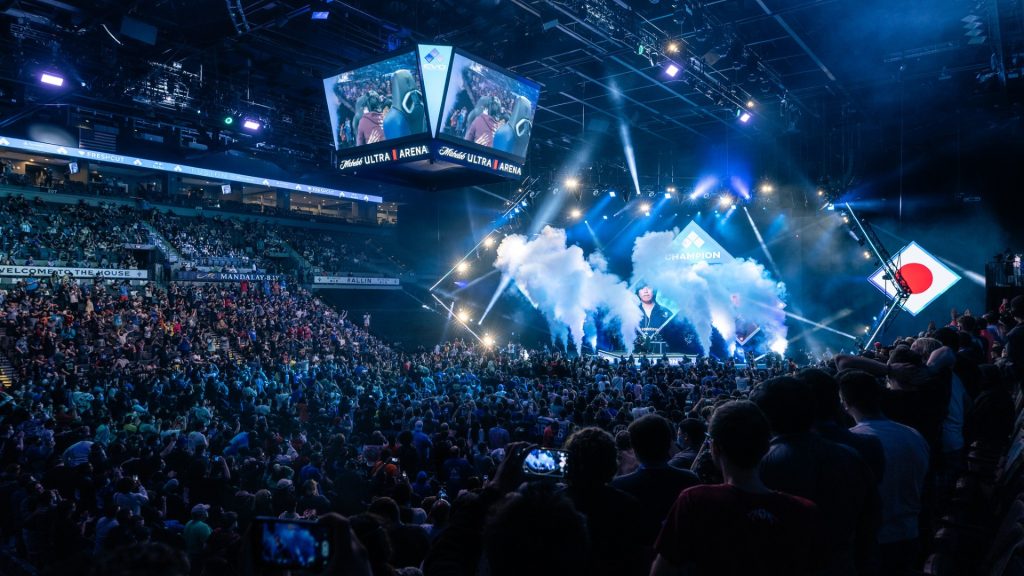
Fighting games are one of the oldest genres in the world of esports. However, unlike other competitive esports titles like FPS or MOBA, fighting games encourage the use of a controller, like on a console, rather than a keyboard and mouse.
Often coined the Fighting Game Community (FGC) genre, competitive events typically encourage using a joystick to control their character during matches as it requires players to repeatedly press a series of buttons to score multiple attacks. Using a mouse and keyboard is discouraged while playing a fighting game, as the FGC genre is more prominent on consoles than on PCs.
Many FGC tournaments are held in a double-elimination format, giving players a chance to adapt and redeem themselves after their first loss in a two-round match.
Tekken, Street Fighter, Super Smash Bros and Mortal Kombat are the popular titles within the FGC genre. More recently, newer PvP titles like Multiversus have risen to popularity within the FGC scene.
RTS (Real-time Strategy)
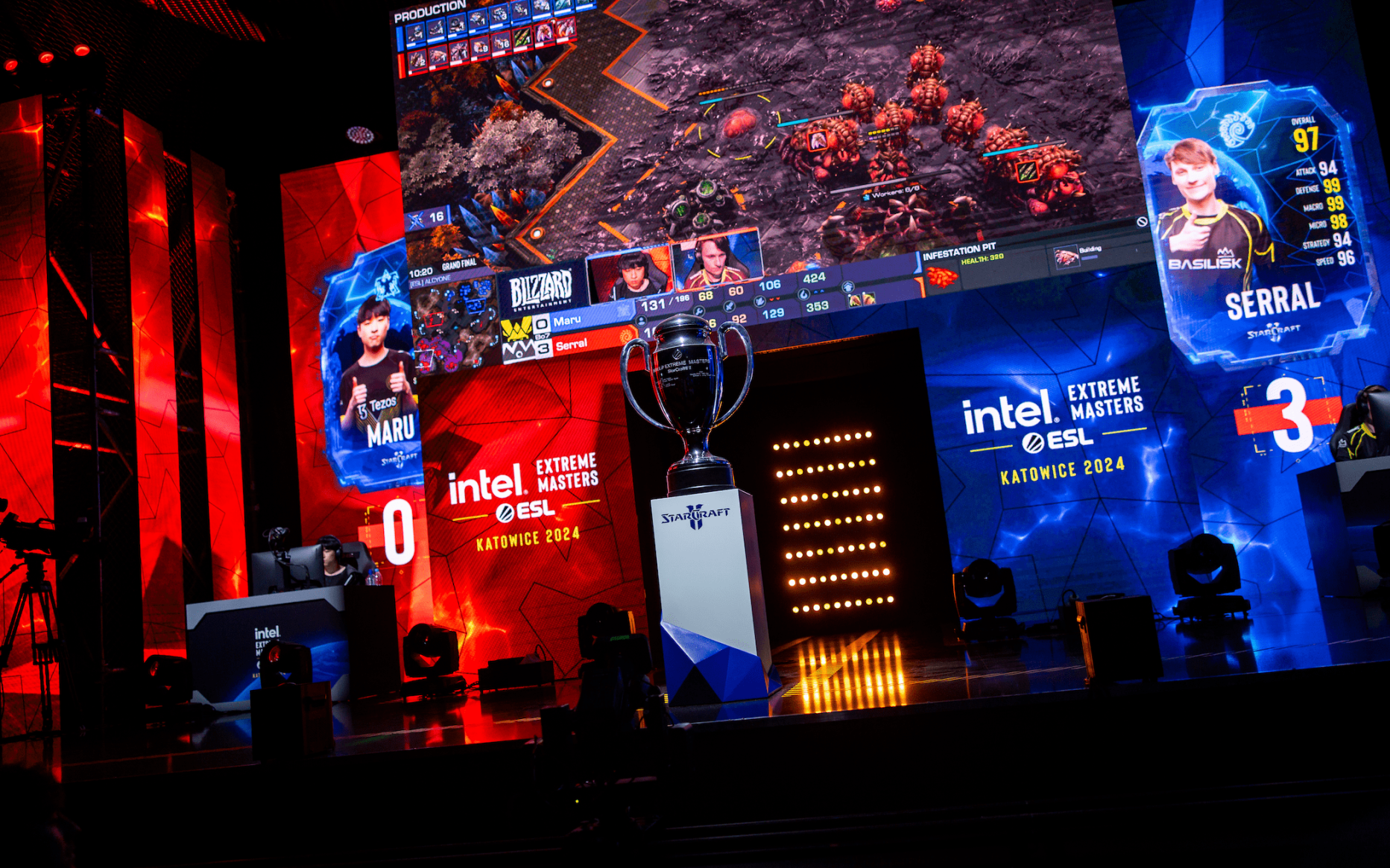
RTS, or Real-time Strategy, is a subgenre of the strategy genre where the player has to make strategic decisions in real-time, simultaneously with other players, instead of turn-based options.
The RTS genre mainly involves the player taking responsibility for an area in the game. Games of this nature typically see the player make strategic choices and coherent decisions about world-building, population and adversity control.
Age of Empires IV, Starcraft II and Sid Meir’s Civilization are some RTS titles that have maintained consistent popularity over time and are hailed as classic RTS titles among strategy fanatics. The Starcraft franchise, in particular, is often referred to as one of the original modern esports titles, in no small part due to its popularity in South Korea.
Over time, some games have also combined elements of tower defence into the Real-time Strategy (RTS) genre. Clash Royale and Clash of Clans are some examples of popular RTS titles on mobile. Meanwhile, the Warcraft franchise was originally developed as an RTS before evolving into a massively successful series that spawned MMORPGs and card-based titles.
MOBA (Multiplayer Online Battle Arena)
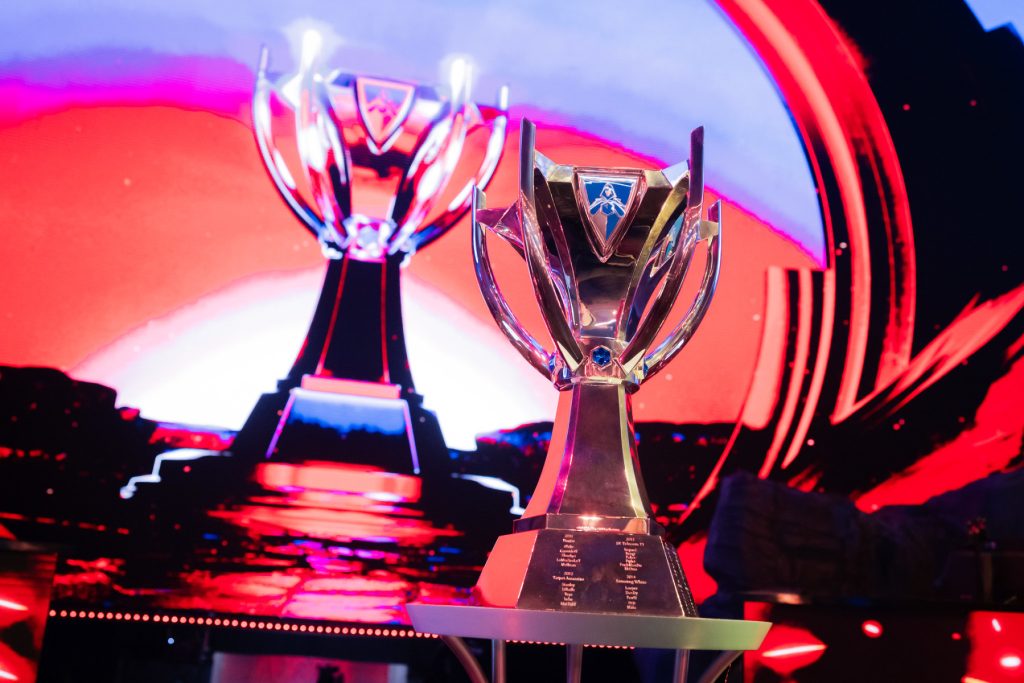
Multiplayer Online Battle Arena, or MOBA for short, are more intensive, stretched-out versions of RTS games. Instead of 1v1 matches like in Real-time Strategy games, players choose a champion from a wide list of characters and cooperate with their teammates to defeat the other team in an arena.
In many MOBA titles, usually there are structures on the opposite side of the arena that teams must defeat to win the match. League of Legends, SMITE and Dota 2 are some examples of MOBA games which have become prominent esports titles with massive tournaments and prize pools.
On the other hand, Mobile Legends Bang Bang!, and Arena of Valor (also known as Honor of Kings) have caused the mobile MOBA esports market to flourish. These MOBA’s have been solely made to play on handheld devices, rather than on PCs. According to Esports Charts, four of the top five most popular esports events ever recorded are tournaments played on MOBA games (two from League of Legends and Two from Mobile Legends Bang Bang).
FPS (First Person Shooter)
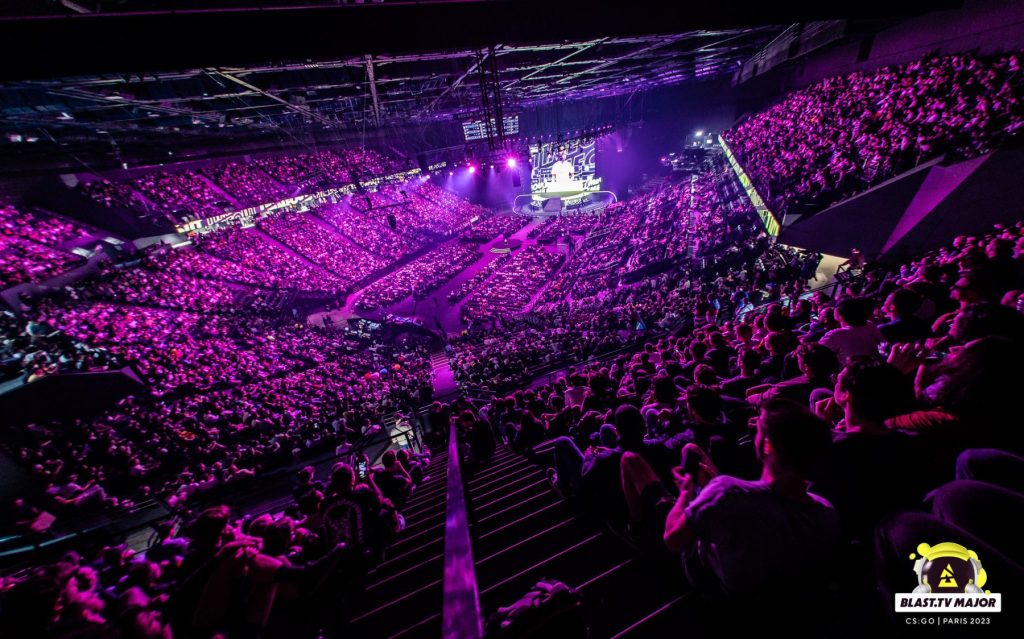
FPS, or First Person Shooter, games are basically action titles where the player has to defeat opponents using a variety of in-game firearms and weapons.
The FPS genre perhaps has the most variety when it comes to competitive game modes. Bomb Defuse, where Team A has to plant the bomb and eliminate the opponents of Team B, is the most popular game mode seen within the esports scene. However, the likes of Team Deathmatch, Free for All and Capture the Flag are other popular game modes that are used across multiple FPS esports titles.
Call of Duty, VALORANT and the Counter-Strike series are some esports franchises that have emerged as massively successful and popular FPS esports titles. FPS esports has also birthed the launch of some of North America’s esports biggest organisations such as FaZe Clan, Complexity and OpTic Gaming.
Battle Royale
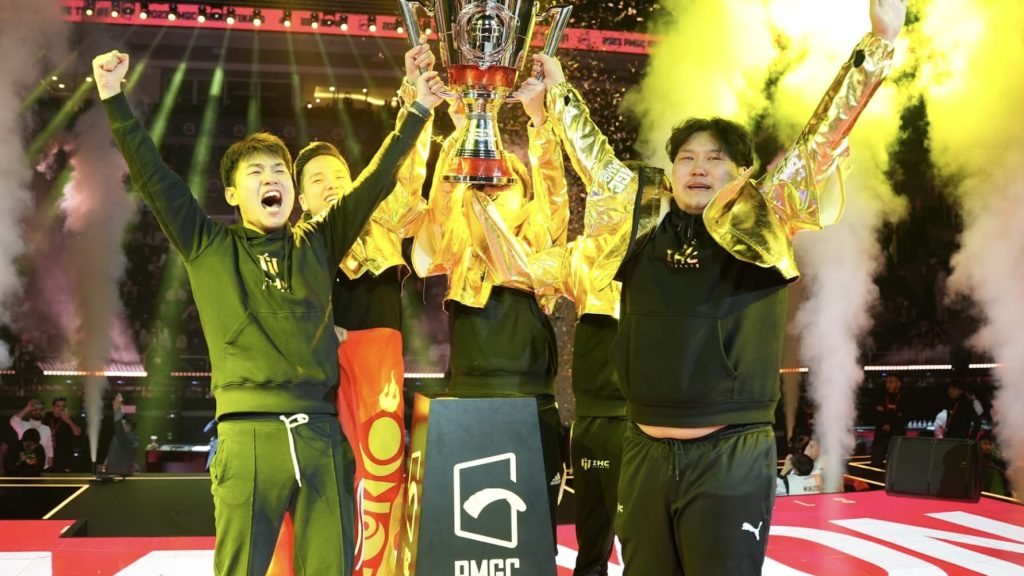
Battle Royale is a widely popular subgenre of the FPS or TPS (Third-person Shooter) genre. So much so that Battle Royale games have become a major component of the esports ecosystem. Battle Royales throw a player in a big arena or a map with a vast amount of opponents. The main objective is to eliminate all the other players.
Battle Royale can be played solo, with two-person teams (duos) or four-person teams called ‘squads’. As a result, in some competitive tournaments, the goal is to eliminate all the other teams in the massive Battle Royale map.
The Battle Royale genre is one of esports’ newest phenomenons, with titles such as PUBG and Fortnite only coming out in 2017. PUBG Mobile, Apex Legends and Call of Duty Warzone are also popular titles in the Battle Royale genre.
Outside of esports, Fortnite — developed by Epic Games — is a massively popular title within the Battle Royale genre, mainly due to big revenue-generating collaborations with celebrities, pop stars and corporations such as Marvel and Disney.
Mobile
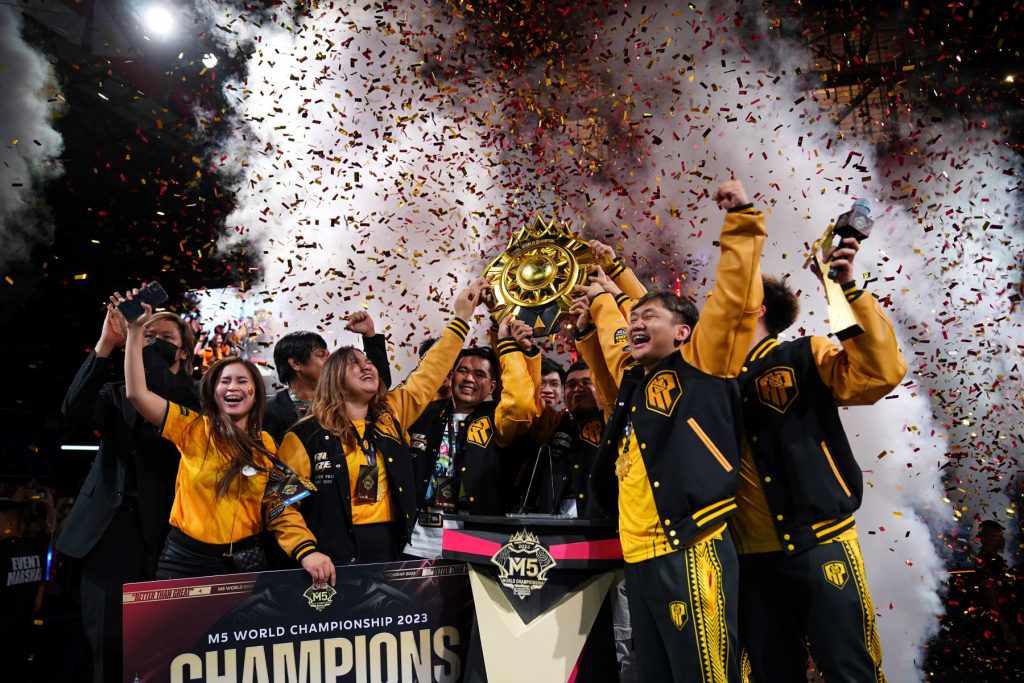
While not a separate genre within esports, mobile esports are often referred to together amongst competitive gaming communities. Mobile esports are competitive titles on handheld devices, like iOS and Android phones and tablets.
The technological advancements made recently on Android and iOS devices have allowed several graphically intensive titles to run on mobile. Mobile Legends: Bang Bang, or MLBB for short, and Honor of Kings are two examples of successful MOBA esports games on handheld devices.
Mobile esports has several successful handheld variants of popular esports titles. PUBG Mobile, Free Fire and Call of Duty Mobile are some popular examples of shooter games that have entered the mobile esports market.
Sports Simulators

The Sports Simulator genre requires players to play matches that are linked to traditional sports such as Football, Basketball and Ice Hockey, among others. These games simulate sports titles virtually and require players to typically use a controller, depending on the game.
FIFA, a football sports simulator title, was one of the oldest and most successful sports simulators to exist within the genre. The football game has since been rebranded to EA Sports FC after the publisher cut ties with the Football Federation.
On the other hand, NBA 2K is another example of a massively successful basketball sports simulator title, with a £2.5m ($2m) prize pool distributed across all NBA 2K tournaments in 2023. Combat sports titles such as UFC and WWE2K are fighting game-focused subgenres of the sports sims ecosystem, however, the games have yet to establish themselves in esports.
Sim Racing
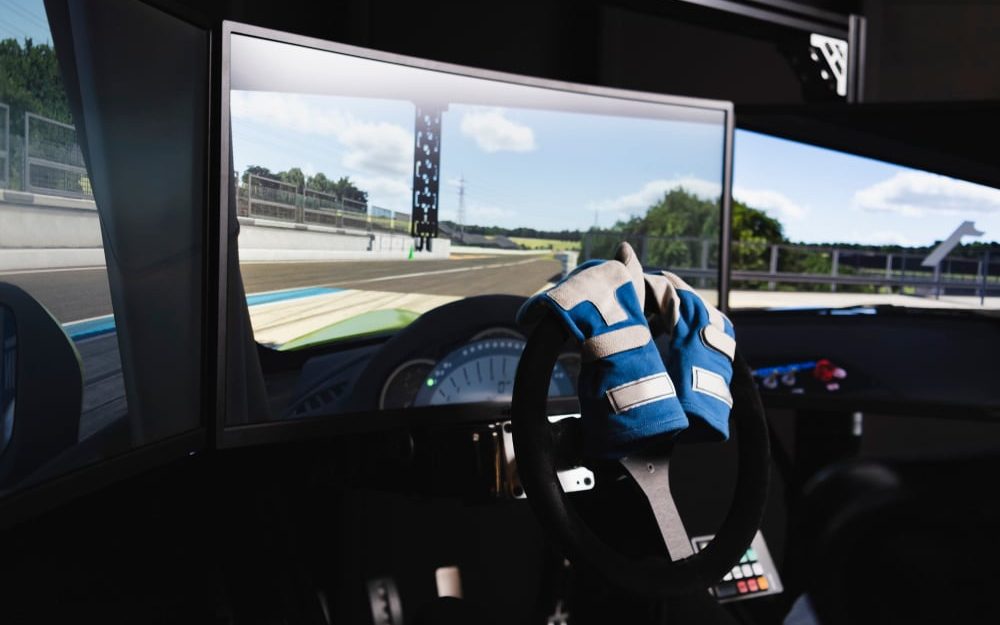
Sim Racing is another subgenre of sports simulation, however, it is widely regarded as its own category. This is largely because it involves virtual car racing with competitors encouraged to use specialised equipment, such as wheels or sim racing rigs, as opposed to traditional equipment (mice and keyboard or controllers),
Gran Turismo, F1 and iRacing are well-known esports racing simulator franchises across the entire genre. The Sim Racing esports ecosystem also tends to attract motorsport teams, with the likes of McLaren, Red Bull, Alpine and Williams active in this esports scene.
